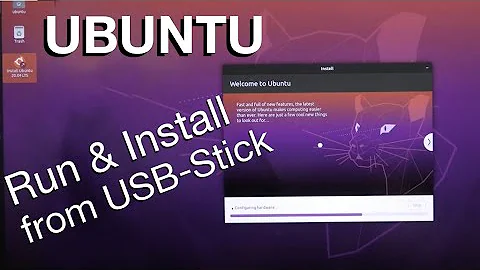Run fsck -y everytime at startup on my main partition Linux
Solution 1
Are you using a particular distribution? On Debian based distributions it would be as simple as adjusting /etc/default/rcS and set FSCKFIX to yes.
If you want to force a full fsck after every boot, then you could simply write create an empty file named /forcefsck. Though I do not suggest you actually do this.
Solution 2
If there had been a power loss fsck will run anyway since the filesystem will not be marked as "clean". You can use tune2fs -c 1 /dev/sda to set the check-interval for ext2/3 to one. IMHO that should force an fsck on every boot.
Related videos on Youtube
Jonathan Henson
Updated on September 18, 2022Comments
-
 Jonathan Henson over 1 year
Jonathan Henson over 1 yearI have an embedded linux system. I use grub2 for the boot loader. I would like to run an fsck -y /dev/sda on /dev/sda every time it boots--even when the system had a power loss and the reboot command was not used. How can I do this?
-
ott-- over 12 yearsHave you considered using a different boot medium like a flash device with jffs2 or ubi (if you could mod the hardware)?
-
 Jonathan Henson over 12 yearsIt is a transcend industrial 44pin flash module. I have the journaling setup and have the write caching turned off. I still get orphaned nodes sometimes though.
Jonathan Henson over 12 yearsIt is a transcend industrial 44pin flash module. I have the journaling setup and have the write caching turned off. I still get orphaned nodes sometimes though.
-
-
 Jonathan Henson over 12 yearsIt is debian based. This will cause it to happen before mounting each time?
Jonathan Henson over 12 yearsIt is debian based. This will cause it to happen before mounting each time? -
 Jonathan Henson over 12 yearsAlso, will this pass -y to fsck?
Jonathan Henson over 12 yearsAlso, will this pass -y to fsck? -
Zoredache over 12 yearsfsck is ran at every boot already, if the filesystem was unmounted correctly it runs very quickly. This change simply makes it so that the system will auto-repair anything that can be auto-repaired. Look at
/etc/init.d/(checkfs.sh|checkroot.sh)to see the full details. -
 Jonathan Henson over 12 yearsthanks, I'll give this a try and let you know how it goes.
Jonathan Henson over 12 yearsthanks, I'll give this a try and let you know how it goes. -
 Jonathan Henson over 12 yearswill this clear orphaned nodes and fix datetime errors? fsck -y always does.
Jonathan Henson over 12 yearswill this clear orphaned nodes and fix datetime errors? fsck -y always does. -
Avery Payne over 12 years+1, this is the correct way to do it. The system will be forced into a fsck on every restart, but that's pretty much what you're asking for.
-
 84104 over 12 yearsBut does this work for non ext2/3/4 filesystems?
84104 over 12 yearsBut does this work for non ext2/3/4 filesystems? -
 Jonathan Henson over 12 years@Nils I will try this, because Zoredache's solution still didn't work.
Jonathan Henson over 12 years@Nils I will try this, because Zoredache's solution still didn't work. -
 Jonathan Henson over 12 yearsWill this perform the check and fix all errors without user interaction?
Jonathan Henson over 12 yearsWill this perform the check and fix all errors without user interaction? -
Nils over 12 yearsNormally not. in most distributions there are possibilities to pass extra options to fsck. For this you have to find the place where to put these. In CentOS/RH5 the script responsible for running fsck at boot is located at /etc/rc.sysinit - there are a number of hooks one could use there - but this is proably dependent on the distribution. My best bet is to do
grep -Iw fsck /etcto find the script responsible for running fsck. If you found that, please post the script in your question. -
 Jonathan Henson over 12 yearsI don't believe fsck is being called each time because the boot screen is still hanging on a corrupted disk that could easily be fixed with fsck /dev/sda1 -y
Jonathan Henson over 12 yearsI don't believe fsck is being called each time because the boot screen is still hanging on a corrupted disk that could easily be fixed with fsck /dev/sda1 -y -
 Jonathan Henson over 12 yearsNevermind, this is because I had everything on the same partition.
Jonathan Henson over 12 yearsNevermind, this is because I had everything on the same partition.




